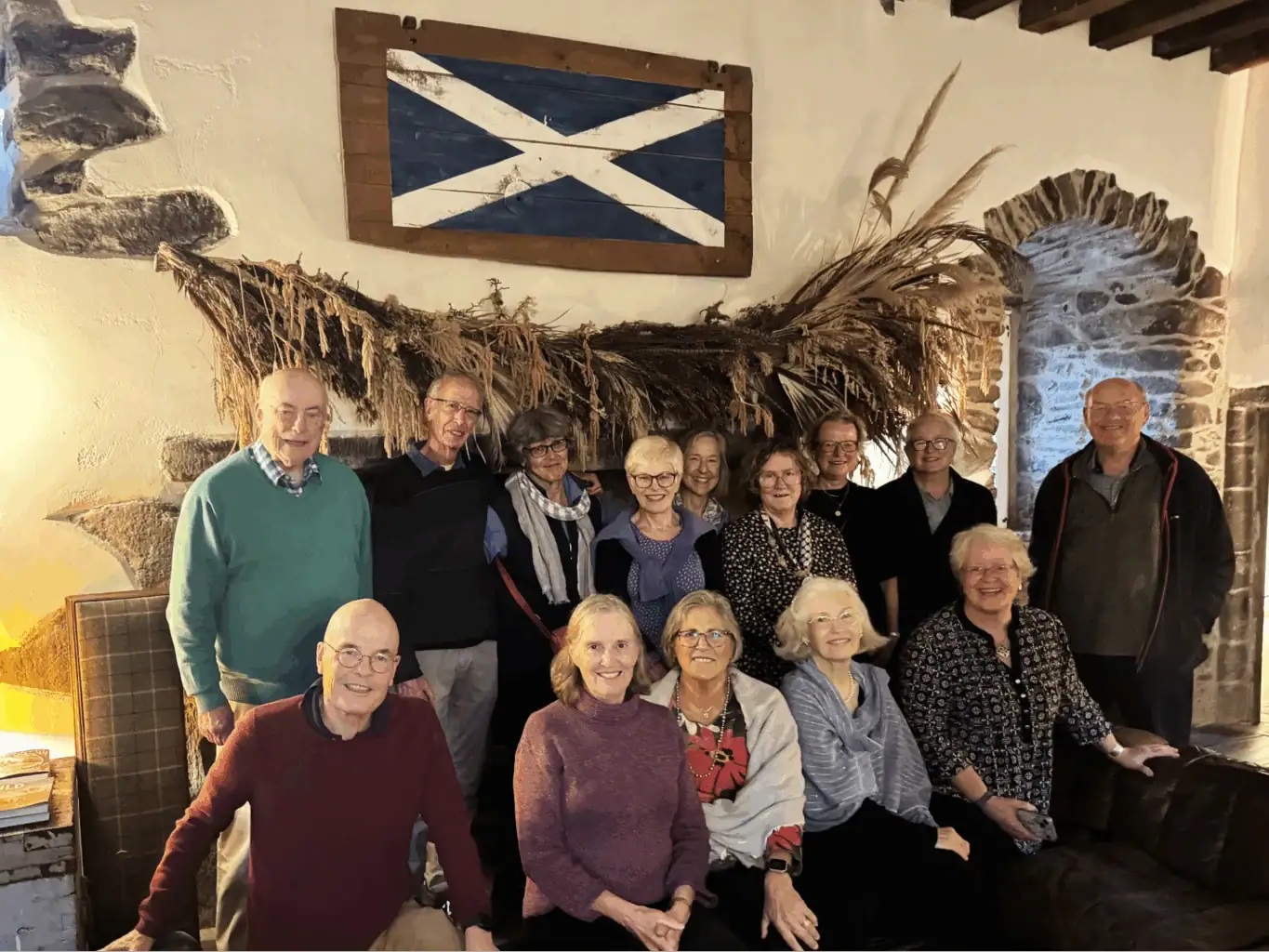Alums
January 7, 2026
An Alum Adventure of a Lifetime in Scotland
What began as a conversation at a 50th reunion turned into an unforgettable journey across Scotland, as members of the CA class of ’73 reunited—this time in the Highlands. Organized by alum Stephanie Lugg ’73, who now calls Scotland home, the weeklong adventure blended ancient landscapes, shared meals, sailing among the Hebridean islands, and plenty of opportunities for connection. More than a trip, it became a powerful reminder of the bonds formed decades ago and the enduring spirit of adventure that defines this class, one that’s already dreaming of where to go next.
